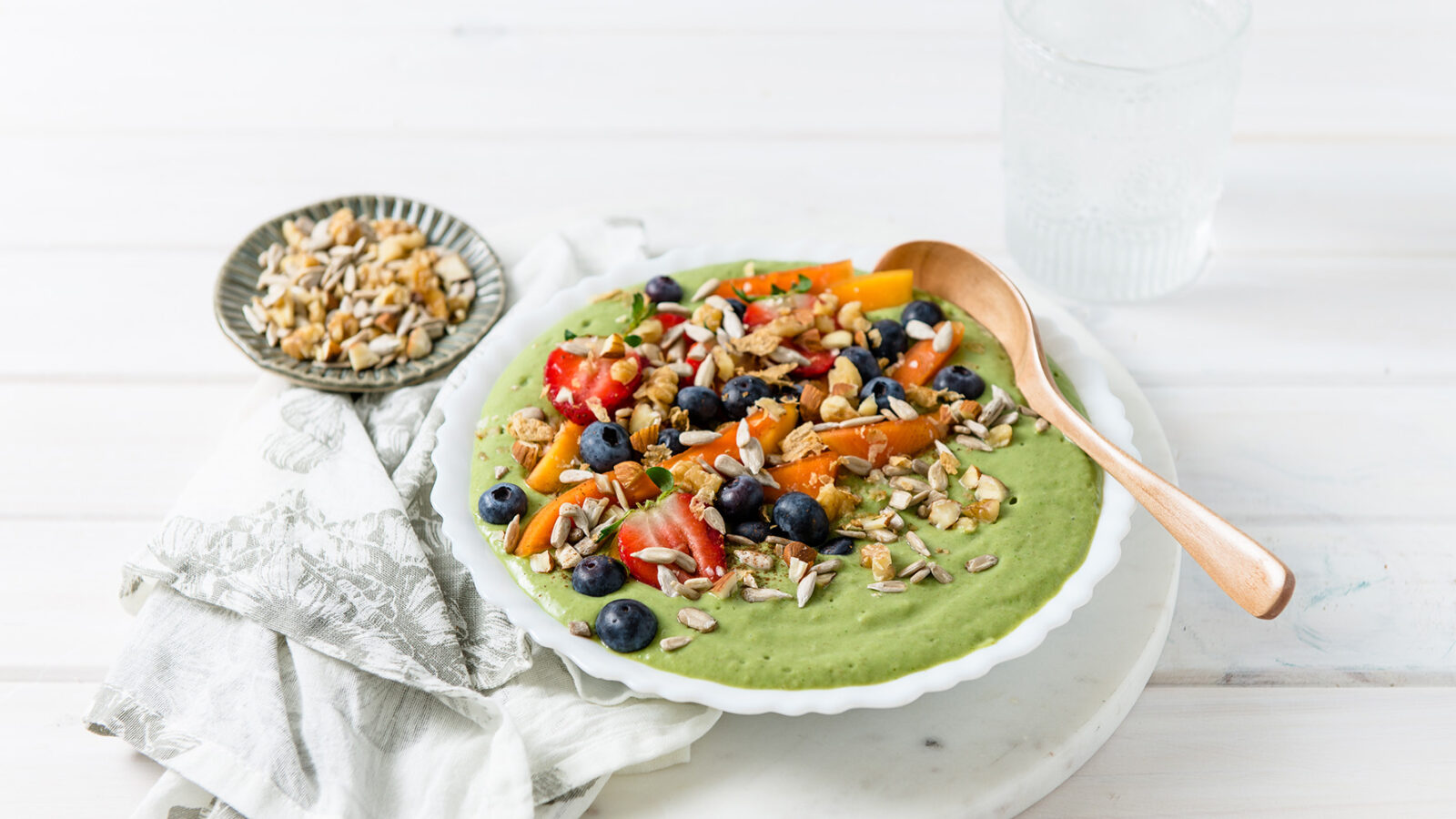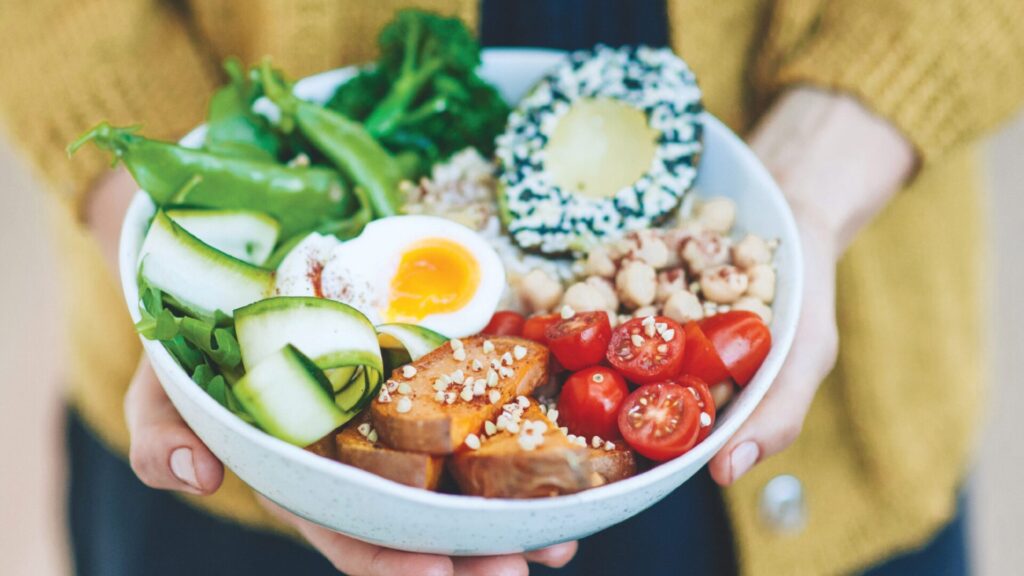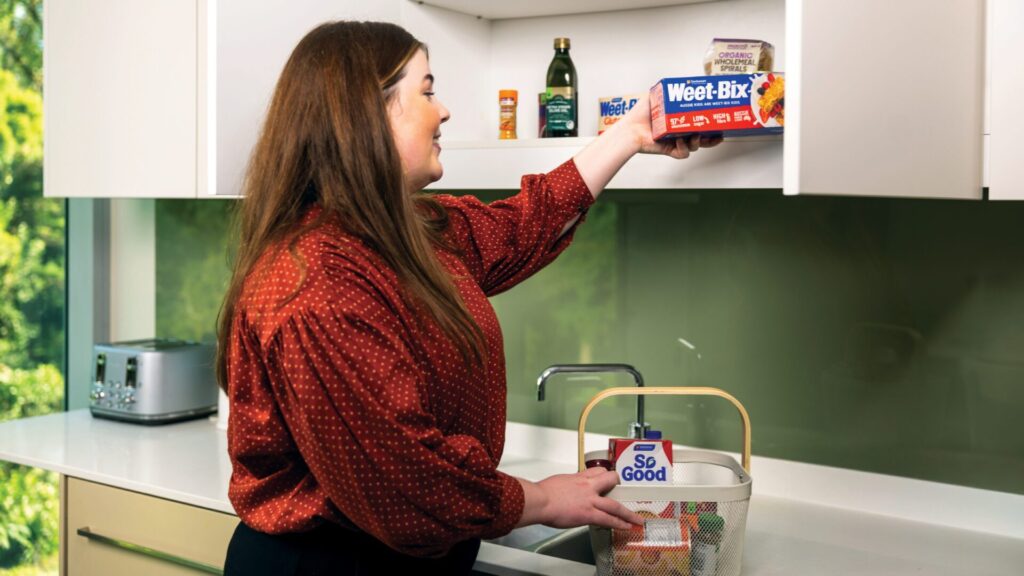Snacks can play an important role in a balanced diet, if you choose the right ones.
They can even help you sneak more veggies into your day or bump up the vitamins and minerals you need, such as nibbling on trail mix with nuts and pepitas for extra iron or a yoghurt snack for more calcium.
Nutrition Australia research also shows high-quality snacks can help you maintain your energy levels throughout the day and avoid overeating at lunch and dinner. So, what makes a great snack?
Go-to snacks to carry in your bag
If, you’re constantly on-the-go, you might like to consider snacks that fit into small containers and don’t require refrigeration. Plus, they’re far less likely to get crushed in your bag or go soft or soggy!
Pack yourself a small container of mixed nuts, which are not only yummy, but will help you maintain a healthy weight and may even reduce your risk of heart disease. You can mix things up, quite literally, by adding some berries and seeds to your nuts. Other great options are chopped carrot sticks, or even a mini tin of baked beans. Yes, you can eat baked beans cold and straight from the can. They are delicious, good for you and a tasty source of iron.
Thinking ahead
If you have slightly more time, you can prepare some delicious and healthy snacks in advance such as peanut butter protein balls. These are so yummy and satisfying. You can also add other ingredients you have in the pantry, such as cranberries, pitted dates, dark chocolate or Weet-BixTM!
Homemade popcorn also makes a simple and affordable snack, cooked with just a little olive oil. Pop the kernels using a pot on the stove and then store the popcorn in small, air-tight containers for a great snack or lunchbox item.
Playing it cool
If you have access to a fridge during your workday, you can further expand your daily snack repertoire. Try half-a-cup of high-protein Greek yoghurt with a drizzle of almond spread and topped with blueberries. For a snack that delivers a nutrient punch, try hummus with veggie sticks—carrots, cucumber, capsicum, celery—or wholegrain crackers. It’s a delicious and easy way to get plant protein, fibre and more veggies into your workday.
Listen to your body
Ever found yourself reaching for a snack in the afternoon because you’re bored or tired? It’s also common to mistake the feeling of hunger for dehydration, as sometimes the body may signal thirst as hunger. While snacking on nutritious foods can be part of a healthy diet, eating when you’re not hungry could see you consume more kilojoules than your body needs.
Before you grab a snack, ask yourself ”am I hungry?” or am ”I just thirsty, bored, tired or upset?” If you’re not hungry, think about ways that you can honour your feelings without food, like chatting to a friend, or going for a quick walk.
For more information and research references, you can read the full article at www.sanitarium.com.






